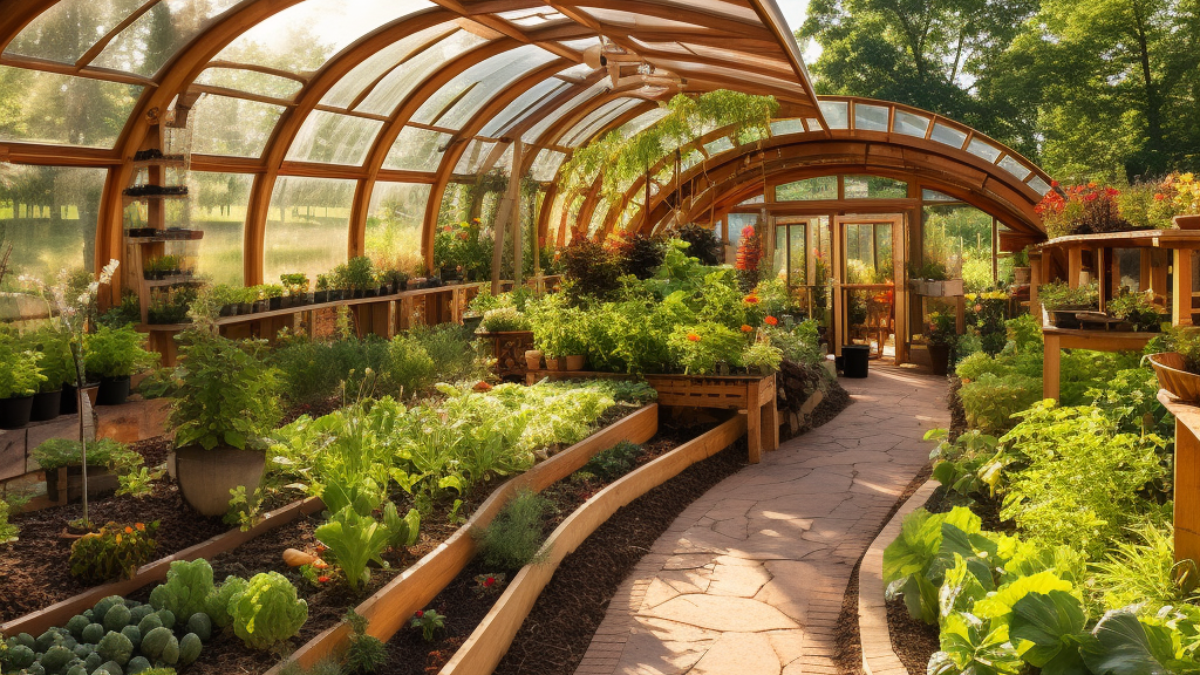Imagine a garden that operates like a self-sustaining ecosystem, where waste becomes nourishment, and resources are recycled endlessly. Welcome to the captivating world of Closed-Loop Gardening, a sustainable and innovative approach to horticulture. In this article, we’ll delve into the magic of Closed-Loop Gardening, exploring its principles, real-life applications, and the positive impact it has on both the environment and gardeners.
What Is Closed-Loop Gardening?
Closed-Loop Gardening, also known as Closed-Loop Agriculture or Closed-Loop Farming, is a regenerative system that mimics the cycles of nature. It revolves around the concept of “waste equals food,” where the outputs of one element become the inputs for another. In this closed-loop system, nothing goes to waste, and resources are continuously reused and regenerated.
This sustainable gardening approach aims to minimize external inputs, such as fertilizers and water, while maximizing efficiency and reducing waste. Closed-Loop Gardens function as self-sustaining ecosystems, promoting biodiversity, and contributing to a healthier planet.
The Principles of Closed-Loop Gardening
- Composting for Nourishment: In Closed-Loop Gardens, composting takes center stage. Kitchen scraps, garden waste, and organic matter are transformed into nutrient-rich compost that feeds the soil and nurtures plants.
- Rainwater Harvesting: To minimize water consumption, Closed-Loop Gardens often incorporate rainwater harvesting systems. Collecting rainwater ensures a sustainable water supply for the garden, reducing the reliance on freshwater sources.
- Polyculture and Biodiversity: Closed-Loop Gardens embrace polyculture – growing a diverse range of plants together. This practice encourages biodiversity, enhances ecosystem balance, and reduces the risk of pest infestations.
- Natural Pest Control: Closed-Loop Gardeners utilize natural pest control methods, such as companion planting and beneficial insects, to maintain a balanced ecosystem without the need for harmful chemicals.
- Closed-Loop Nutrient Cycling: The concept of nutrient cycling is integral to Closed-Loop Gardening. Nutrients released by decomposing organic matter and plant residues are absorbed and reused by other plants, closing the nutrient loop.
Real-Life Applications of Closed-Loop Gardening
Closed-Loop Gardening is more than just a theoretical concept; it’s a practical and successful gardening approach embraced by enthusiasts and experts worldwide. Here are some real-life examples of how Closed-Loop Gardening is making a difference:
- Permaculture Gardens: Permaculture designs often incorporate the principles of Closed-Loop Gardening. By creating self-sustaining ecosystems, Permaculturists cultivate resilient and productive gardens that thrive without the need for external inputs.
- Community Gardens: Community gardens that adopt Closed-Loop Gardening principles foster sustainability, reduce waste, and encourage community participation in environmental stewardship.
- Urban Rooftop Gardens: In urban areas with limited space, Closed-Loop Rooftop Gardens offer a sustainable solution to urban gardening. Rainwater is harvested, compost is created from food scraps, and polyculture thrives in compact spaces.
- Organic Farms: Organic farmers often embrace Closed-Loop Gardening practices to reduce the need for synthetic inputs and foster soil health naturally.
The Environmental Impact of Closed-Loop Gardening
- Reduced Waste: Closed-Loop Gardening significantly reduces waste by recycling organic matter into compost and repurposing resources within the garden.
- Water Conservation: Rainwater harvesting and efficient watering practices minimize water consumption, contributing to water conservation.
- Healthy Soil: The emphasis on composting and nutrient cycling enriches the soil, promoting healthier plant growth and reducing the need for synthetic fertilizers.
- Biodiversity Support: Polyculture and biodiversity attract beneficial insects and pollinators, enhancing ecosystem health and contributing to a more balanced environment.
In Conclusion
Closed-Loop Gardening exemplifies the power of sustainability and resourcefulness in horticulture. By embracing the principles of waste reduction, nutrient cycling, and biodiversity, Closed-Loop Gardens become thriving ecosystems that flourish with minimal external inputs.
As gardeners, we have the opportunity to take inspiration from nature’s closed-loop systems and apply them to our gardening practices. Closed-Loop Gardening offers a practical and innovative path to a more sustainable and regenerative future, where gardens become both a sanctuary of beauty and a model of ecological balance.
So, as you embark on your horticultural adventure, consider the magic of Closed-Loop Gardening and the impact it can have on your garden, the environment, and your connection to nature. May your garden become a living testament to the beauty and resilience of a closed-loop ecosystem. Happy gardening!



